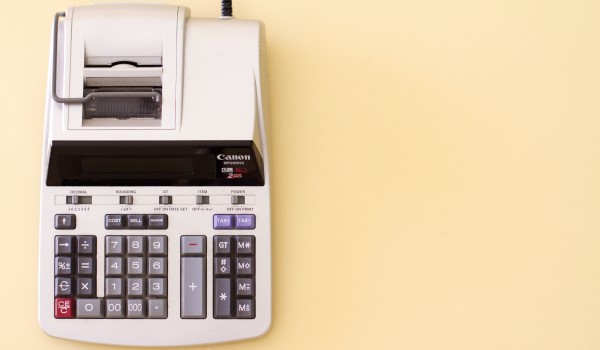Reviewing your savings
We always want the best for our members, which is why we recommend that you should regularly review any savings you have; either with us or elsewhere. Ensure that you're still getting competitive rates (where you aren't locked into a fixed term product) and that your accounts continue to help you reach your savings goals.
See our full range of savings accounts, compare interest rates and find the right product for you.
See our savings products
When you’re researching savings accounts, or checking through terms and conditions, you’ll come across all kinds of words, phrases and abbreviations you might not have seen before. If you’re not sure what they mean, don’t worry – we’ve explained some of the most common terms below. Is there something we’ve missed? Let us know.
What does Annual Equivalent Rate (AER) mean?
The AER will show you what your interest rate would be if interest was paid back into your account. For accounts that pay interest annually, the gross rate and the AER should be the same. For accounts that pay interest monthly the AER will be slightly higher than the gross rate. This is because if you leave your monthly interest in the account you’d start to earn interest on the interest. The AER is designed to make savings accounts easier to compare. It’s as simple as that.
What’s the base rate?
That’s the Bank of England interest rate, and it refers to the interest banks and other lenders pay to borrow from the Bank of England. It’s used to calculate interest rates on some savings and mortgage products, so it can affect how much interest you earn or pay.
Savings rates tend to be lower than the Bank of England interest rate and mortgage rates tend to be more.
What’s a branch-based account?
A branch-based account is just what it sounds like: an account you’ll manage in person at your local branch. It’s the opposite of a Beehive Money account – with Beehive, you’ll make all your withdrawals, deposits, and account applications in the app.
What’s a Cash ISA?
A Cash ISA is a type of tax-free savings account, which means you won’t have to pay tax on your interest. Any money you put into your Cash ISA will count towards your ISA allowance, which is £20,000 each tax year. It doesn’t affect your Personal Savings Allowance, though.
What’s a charitable assignment?
A charitable assignment means that when you open a new account, you have to agree to pay over any future windfall rights to the Charities Aid Foundation. In simple terms, if The Nottingham – the building society that owns Beehive Money – was sold or taken over, new members won’t be paid a windfall; it’ll go to charity instead. It’s there to put off ‘speculative investors’, so we can focus on supporting genuine savers like you.
What does Clearing House Automated Payment System (CHAPS) mean?
CHAPS is just a computer system used for electronic payments. The money goes from the paying bank to the receiving bank on the same day (up until 6pm), guaranteed. There’s usually a charge for the service.
What is the Data Protection Act (DPA) and General Data Protection Regulation (GDPR)?
In easy terms, both the DPA and GDPR are there to protect the way your personal data is kept and used by businesses.
The DPA controls how your personal information is used, and it gives you some rights to access the information about you that companies hold. GDPR is an EU regulation on data protection and privacy covering everyone in the European Union and the European Economic Area. It also includes rules about the transfer of personal data outside the EU and EEA areas. Although the UK is no longer an EU member, these rules have now become part of UK law, too.
What do you mean by ‘deposit’?
When we say ‘deposit’, we just mean the money you pay in your savings account. So, a £100 deposit is just a £100 sum you’ve put in your pot. An ‘initial’ or ‘opening’ deposit is the first sum of money you pay into a newly opened account - which usually has a minimum amount you can open the account with.
What does ‘easy access’ mean?
That’s simple. It means you can take money out of your account quickly, easily, and usually without notice or having to pay a penalty. Typically, easy access accounts have lower interest rates than other savings accounts, but they’re useful if you think you’ll need to dip into your pot every now and then.
What’s financial planning?
Financial planning is about looking at your financial situation, thinking about the future, and deciding how best to manage your money to live the life you want. You can plan this personally or you can decide to work with an Independent Financial Adviser (IFA) if you feel like you need more advice.
What’s the Financial Services Compensation Scheme?
The Financial Services Compensation Scheme (FSCS) protects your money if your building society or bank can’t repay it. It’s the UK’s compensation fund for customers of authorised financial services; an independent compensation scheme set up under the Financial Services and Markets Act 2000 (FSMA), and you can use it when a financial services firm is unable to give you your money back if they got into trouble.
Beehive Money through The Nottingham is part of the scheme, which means your savings are protected up to a total of £85,000 across all accounts you hold with The Nottingham group.
What’s a fixed rate ISA?
A fixed rate ISA is exactly what it sounds like: a type of Individual Savings Account with a fixed rate. That means the interest rate won’t change during the term of your account. You also won’t pay any tax on the interest you earn as ISAs are tax-free.
What’s gross interest?
Gross interest is the interest paid on your savings before tax is taken off.
What’s an Individual Savings Account (ISA)?
An ISA is a tax-free savings account. It’s simple, really: with accounts like these you won’t have to pay tax on the interest you earn, and you can only open them for yourself. That’s what the name ‘Individual Savings Account’ means.
What’s a Lifetime ISA?
A Lifetime ISA or LISA (pronounced lie-sa) is a tax-free savings account and Government scheme designed to help you save for two of life’s big milestones: your first home and/or retirement.
It works like this. For every £4 you save – up to an annual total of £4,000 – you’ll get £1 from the Government. That means you could earn up to £1,000 every year until you turn 50. And that’s not including the interest on top, which you won’t have to pay tax on either.
What’s an instant access account?
With an instant access account, you can take money out of your savings pot whenever you need, quickly and easily, without giving notice or paying a charge. They’re the same as an easy access account, but with one difference: you take money out of instant access accounts in a physical branch and instantly get your cash. So, you won’t come across them at Beehive Money – but .
What’s a savings interest rate?
An interest rate is how much we’ll pay you for saving with us. We show it as a percentage, and we’ll apply that percentage to how much you save over the year to calculate the total.
What does maturity mean?
When a savings account ‘matures’, or ‘reaches maturity’, that means it’s got to the end of its defined term. Your account will be closed on this date and you’ll need to decide whether to put it into another account or whether it’s time to use your savings.
What are membership rights?
You might have heard us mention that Beehive Money is part of a mutual, or building society. That means we’re owned by – and run for – our customers, who we call members. If you’re a member you have voting rights, which allow you to have your say in the way we do things. Read our in our about us section.
What’s a mutual building society?
Beehive Money is run by Nottingham Building Society, also known as The Nottingham. It’s different from a bank. A bank’s a commercial business, and it makes profits for its shareholders. A building society is owned by its members as a mutual organisation, and uses its money to make things better for those members and the local community.
What is a notice account?
If you have a notice account, you’ll have to give a set number of days’ notice before you can take money out of your savings. You might be able to make withdrawals instantly if you pay a penalty – check the terms of your account if you’re not sure.
What’s the Personal Savings Allowance (PSA)?
The PSA or Personal Savings Allowance is the amount of interest you can earn before you have to pay any tax. Your PSA depends on how much money you make, but basic rate taxpayers can earn up to £1,000 of interest on savings, tax free. Read our PSA guide if you’d like to know more.
What’s a postal account?
A postal account is a type of savings account managed via post, rather than in a branch or online. You won’t find postal accounts on Beehive – we do everything in our app or on our website.
What’s a regular savings account?
A regular savings account rewards you for putting a little money aside every month. Accounts like these usually offer higher interest rates, but you might have to pay charges if you need to take money out now and then. .
What does tax-free interest mean?
You won’t have to pay income or capital gains tax on tax-free interest. It’s as simple as that!
What’s a term?
When you see the word ‘term’ in a phrase like ‘the term of the account’ or ‘fixed term’, it refers to the lifespan of the account or interest rate.
What are tiered interest rates?
Some accounts have tiered rates that depend on how much money you deposit. When you save up enough money to reach the next tier, you’ll earn that tier’s interest rate on the percentage of your balance, for example this may be 1% on the first £1-£100 and so on.
What’s a transaction?
We use ‘transaction’ to mean the movement of money in and out of your account.
What’s a trustee?
A trustee is the person who legally takes responsibility for assets, such as the funds in a savings account or a property, on behalf of someone else. So, a parent would be the legal trustee of a savings account for their child.
What’s a variable rate?
A variable rate means that we can change the interest rate of the account. Some reasons we may do this are detailed in our terms and conditions and we’d write to you 60 days before this happened so you have time to decide if you’re happy to leave your money where it is or move it elsewhere.








